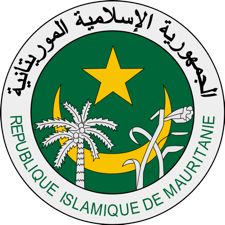The cause for travel was the 36th Annual WAIST, the West African Invitational Softball Tournament. It's quite the affair, with 32 teams this year from Senegal, Mauritania, Mali, The Gambia, and Guinea. Many players are Peace Corps Volunteers, but there are also a few ex-pat teams (UN and embassy staff) and some Senegalese nationals. Peace Corps Mauritania classically has a strong representation at the event, and 2009 was no exception. We packed 100 of us onto two coach buses (what luxury!) to make the voyage from our training center in Rosso. It took roughly 10 hours door-to-door, including the laborious border crossing. We entered three teams in the competition: the Pirates, the Buccaneers, and the Scallywags. I was one of our host of spectator-cheerleaders.


Also participating in WAIST were two of my friends from Boston University, Andy and Annicka, who are both PCVs in Senegal. Totally random that we all ended up so close together in West Africa.

The games took place over Saturday and Sunday, with simultaneous play on four ball fields. Two were provided by Boston's own Suffolk University, which has a satellite campus in Dakar. Concession stands sold fabulous treats like hot dogs, pulled pork, ice cream, and beer (none of which exist for us in Mauritania!). Our "A" team Pirates went undefeated to make it to the play-offs on Monday. The championship field overlooked beautiful cliffs right on the ocean. Our opponents were formidable, but we persevered -- and captured first place in the social division! The pride! The glory!


We took some time to soak in some of the Dakar sights. We relaxed on tranquil, deserted beaches. We ate delicious Indian curry and Italian gelato. We bought cheese and lunch meat and chips and salsa in an overwhelming grocery store (with overwhelming European-import prices).


We fought our way through the artisanal marketplace, amidst all the vendors hawking their goods and imploring us in English, "My sister! My friend!" I tried to use my impoverished volunteer status for leverage in bargaining, but the sellers laughed and absolutely refused to believe that I lack electricity. "God will pay you for your work," one offered, in French. "Yes," I replied, "but God doesn't buy me earrings!" Another helpful strategy was using my Pulaar (Senegal is about 25% Pulaar). In such a big tourist area, I would imagine they don't see too many white girls speaking their native language! That was usually good for knocking a few thousand francs off the inflated asking price -- even better when coupled with sucking of the teeth and a disapproving finger-wag, traditional signs of distaste here. My friends and I ended up with a happy menagerie of ebony and teak hand-carved creatures:

Another highlight was passing through the colonial town of Richard Toll, on the river that borders Senegal to the north. You can see Mauritania just on the other side, and somehow it is a completely different world. I enjoyed a tender steak and a glass of wine poolside in this lush garden. Compare with my dusty, beloved little village of Dar El Barka, immediately over the river. So close, and yet...


P.S. I hope you enjoy all the photos. I painstakingly sat at this computer for hours (literally) in order to post this many for you!

